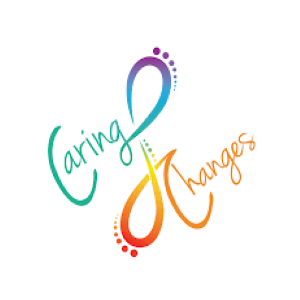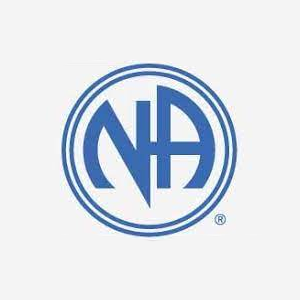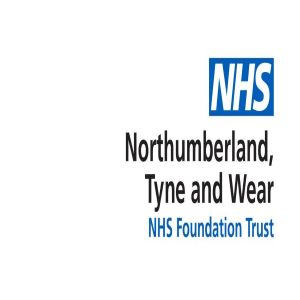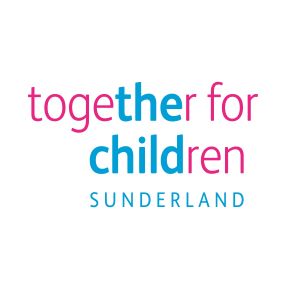Drug & Alcohol Rehab in Sunderland

How Does Rehab Work?
Rehab involves multiple strategies that are created to address individual addiction with support, wellness methods, and steps to restoring balance. Clients are introduced to life-changing, supportive, and therapeutic programmes that are led by experienced and professional therapists. Along with individual therapeutic intervention, individuals can benefit from the support received from group sessions. Addictions are treated with a residential or an outpatient programme. For those who enter an inpatient rehab programme, the programme requires that one stay inside the centre or the facility with limited access to the outside world. Outpatient services are an option for those with less severe dependencies and will meet with a counsellor weekly while attending work and staying at home.
What Happens During Residential Rehab?
The choice to search for rehab for drug and alcohol addiction is really a brave one and can be supported with individualised rehabilitation services. We offer a breakdown of what you can expect during the process of drug and alcohol rehabilitation.
Prior to entering rehab, every individual will be assessed by a medical professional. The aim is to create a treatment plan suited to individual health and wellness needs. This is particularly important for those with a history of addiction and comorbid mental conditions including depression, anxiety or bipolar disorder.
Assessments are followed by detox. Individuals who enter detox will begin withdrawing from substances including alcohol, as the body returns to a normal state of function. This timeline will differ depending on the type of substance used and the length of dependency. Only when the system no longer contains the drug will individuals participate in a treatment plan.
Therapy is an important part of the rehab process and every aspect of addiction treatment must be tailored to address individual backgrounds, substance dependencies, and circumstances. Interventions can range from private counselling and cognitive behavioural therapy to developing coping strategies, life skills, and attending group meetings.
1. Assessment

A complete medical assessment is the initial step to receiving the appropriate treatment during rehab. If you are looking into residential rehab, you can expect a telephone assessment by an admissions team. The telephone assessment will provide the treatment facility with the information needed to develop a unique treatment plan. Medical support staff will also have the information to manage individuals through the phase of detox.
To help you or someone you know, receive the best possible therapy for addiction and substance use, it is important to receive an individual assessment by a dedicated professional. The assessment will aid the direction of therapy including treatment for those with comorbid illnesses such as anxiety.
2. Detox

Detox is a period in which drugs and alcohol are no longer used and cleared from the body. It is a process that is best monitored by medical staff in an inpatient facility.
A medical detox is often recommended because it helps medical staff to oversee withdrawal symptoms. Withdrawal from substances can be uncomfortable and relapse may occur if not managed within a treatment centrefacility. Medically assisted detox can ease the process by supporting clients and providing medical treatment to limit withdrawal symptoms. During an individual assessment, a professional will determine which approach is best suited to a comfortable detox and entry into therapy thereafter.
3. Therapy

Once a medical assessment and detox are finalised, individuals will begin therapy. Therapeutic intervention will consist of inpatient or outpatient services depending on the your finances and life commitments. Some of the most common therapies you can expect at a treatment centre include traditional one-on-one counselling, trauma counselling and skill development, as well as group therapy sessions.
Step by Step Process for Residential Rehab
To understand your medical and mental health history.
Arrange a suitable date to begin your journey to recovery.
Begin the managed withdrawal process from substances including alcohol.
To understand the root cause of addiction and how to overcome it.
Aftercare is provided to help manage the risk of relapse.
To help heal the wounds that addictive behaviour has caused others.
Find your Nearest Rehab Centre in Sunderland
The nearest rehab centre is Wear Recovery.
Address: Wear Recovery, 4-6 Mary St, Sunderland SR1 3NH
Call 0333 4444 432 to discuss your alcohol or drug rehab requirements and any other questions you may have about the process of residential rehab.
Outpatient Addiction Services in Sunderland
Inpatient or outpatient treatment for addiction can be determined by your budget requirement & individual circumstances. Nevertheless, it is an individual process that requires commitment and awareness to succeed. To help you understand these different processes, we look at outpatient addiction treatment services compared to residential rehab.
Outpatient services are not a 24 hour or even a 12-hour programme, but instead, involve weekly meetings with a therapist or group. Individuals will live at home and continue to work or tend to family time while receiving the necessary support.
If you are interested in pursuing outpatient treatment, it is vital to find a relevant programme that suits your needs. Outpatient programmes range from paid private counselling to free charitable organisations that specialise in drug and alcohol addiction.
NHS Free Addiction Services in Sunderland

Empire Housel, Newbottle Street, Houghton Le Spring, Sunderland, Tyne and Wear DH4 4HJ
WebsiteThe Benefits of Outpatient Services
Private outpatient plans are tailored to the patient. The purpose is to offer the best standard of support and intervention for recovery from addiction. – Outpatient support is considered flexible because individuals with family/work commitments can continue to manage these areas of life while attending 1 or 2 therapy sessions per week. – It is also more affordable compared to inpatient rehab services.
The Challenges of Outpatient Services
Outpatient options will always have a crucial role in rehabilitation but for drug and alcohol dependence, remaining in the same environment with access to substances and regular social circles is likely to risk relapse. Furthermore, free outpatient services provided by the NHS or UK-based charities do not provide the same tailored programme that private outpatient services provide, and there is typically a waiting list before you can be accepted for treatment.

How Much Does Rehab Services Cost in Sunderland?
Alcohol or drug addiction treatment in a residential setting can cost around £1500- £4000 per week. When private addiction treatment is not an option, our aim is to guide you to find the right recovery programme that fits your budget requirements.
One example of a free addiction service is that provided by Turning Point. Turning Point offers a variety of structured support programmes to address both alcohol and drug addictions. You can refer yourself to the service via their website. Aside from organisations such as Turning Point, you may consider private therapy or one of the many free support groups including Narcotics Anonymous (NA), Cocaine Anonymous (CA), and Alcoholics Anonymous.
Support Groups in Sunderland

Main Share Group
Salvation Army Swan Lodge, High Street East, Sunderland, Tyne and Wear SR1 2AU

Sunderland St Gabriels As Bill Sees It
St Gabriels Church, St Gabriels Avenue SR4 7TF

Sunderland Afternoon
St Gabriels Church Hall, corner Kayll Rd/Chester Rd. SR4 7TF
The Pros and Cons of Seeking Treatment in Your Local Area
Pros
1. You are familiar with the area which may provide a layer of comfort/safety.
2. Family or friends can easily travel to visit or are close by.
3. You may save on the costs of travelling long distances for treatment, or free addiction services may only be offered in your hometown.
Cons
1. A local environment means access to drug dealers or other triggers. This is more of a concern if you opt for outpatient programmes.
2. Failing to consider locations outside your area could mean missed opportunity for more valuable and rewarding programmes.
3. Addiction treatment programmes that are close by don’t always provide the best standard of rehab.
In the event you are unsure about a particular addiction treatment service, you can look to the CQC website for more information including a rating of that service.


